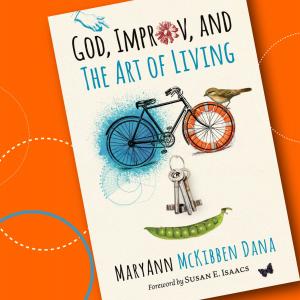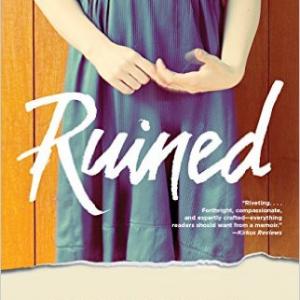
David Ensign is a writer, filmmaker, and part-time pastor at Clarendon Presbyterian Church in Arlington, Va.
Posts By This Author
A Different Divine Comedy
THE DAY AFTER the 2016 election, I joined my weekly improv-for-clergy workshop. We were a small group of progressive pastors still in shock. It might be more accurate to say we were still in denial. The election had given us President Donald Trump, and we wanted to scream, “No!”
Though most of us were novices, we knew the first rule of improv comedy: “Yes, and.” You accept what someone else says and build on it. Improv is impossible without “Yes.”
Our teacher asked us, “Would you rather process the election or play?” We were unanimous, albeit tepid, in choosing to play. Laughter seemed the best medicine for shared distress if midday whiskey or a four-year nap were not options. We entered the play of improv that afternoon, testing the art’s fundamental stance captured in the rule of “Yes.” How could we say “Yes” when from our core we wanted to scream “No”?
MaryAnn McKibben Dana, who participated in that group while researching God, Improv, and the Art of Living, reminds us, “We are not in control of our lives. But we can choose Yes.”
Choosing “Yes” lies at the heart of resistance, and thus the insights and practices of improv have a great deal to offer both to activism and to keeping faith through these days when affronts to human dignity and assaults on democracy come faster than laugh lines at a Second City performance.
When Theology Intensifies Trauma
“IT HAPPEDN ON a Sunday night, even though I’d been a good girl and gone to church that morning.” From that opening, Ruth Everhart’s Ruined begs the question: If the sovereign lord of the universe wills you to suffer unspeakable pain, what choice do you have?
Find your voice, and find a better God.
Ruined is a powerful memoir of suffering, survival, and theological imagination. In the age of Donald Trump, it is also subtle yet keen political critique. With unflinching and deeply personal honesty, Everhart takes the reader through the valley of deepest shadows with eyes wide open to the horror of a home invasion and sexual assault she and four Calvin College senior housemates survived in November 1978. The assault ruined more than the author’s sense of what it meant to be a “good girl”; it also ruined her image of God.
Her strict Calvinist upbringing in the Christian Reformed Church taught that nothing happens outside of the sovereign will of God. Yet the assurances of the catechism came up short in the face of the horror and violence Everhart and her friends experienced.
In the aftermath, as days stretched to months, she was left struggling to understand how her rape could be part of God’s will or if it was the punishment God brought upon her for the sin of being a fallen woman. When, against the odds, the rapists were eventually sentenced to lengthy prison terms, she was left wondering: If God was responsible for that “justice,” did that also mean that God was responsible for the crime in the first place?

